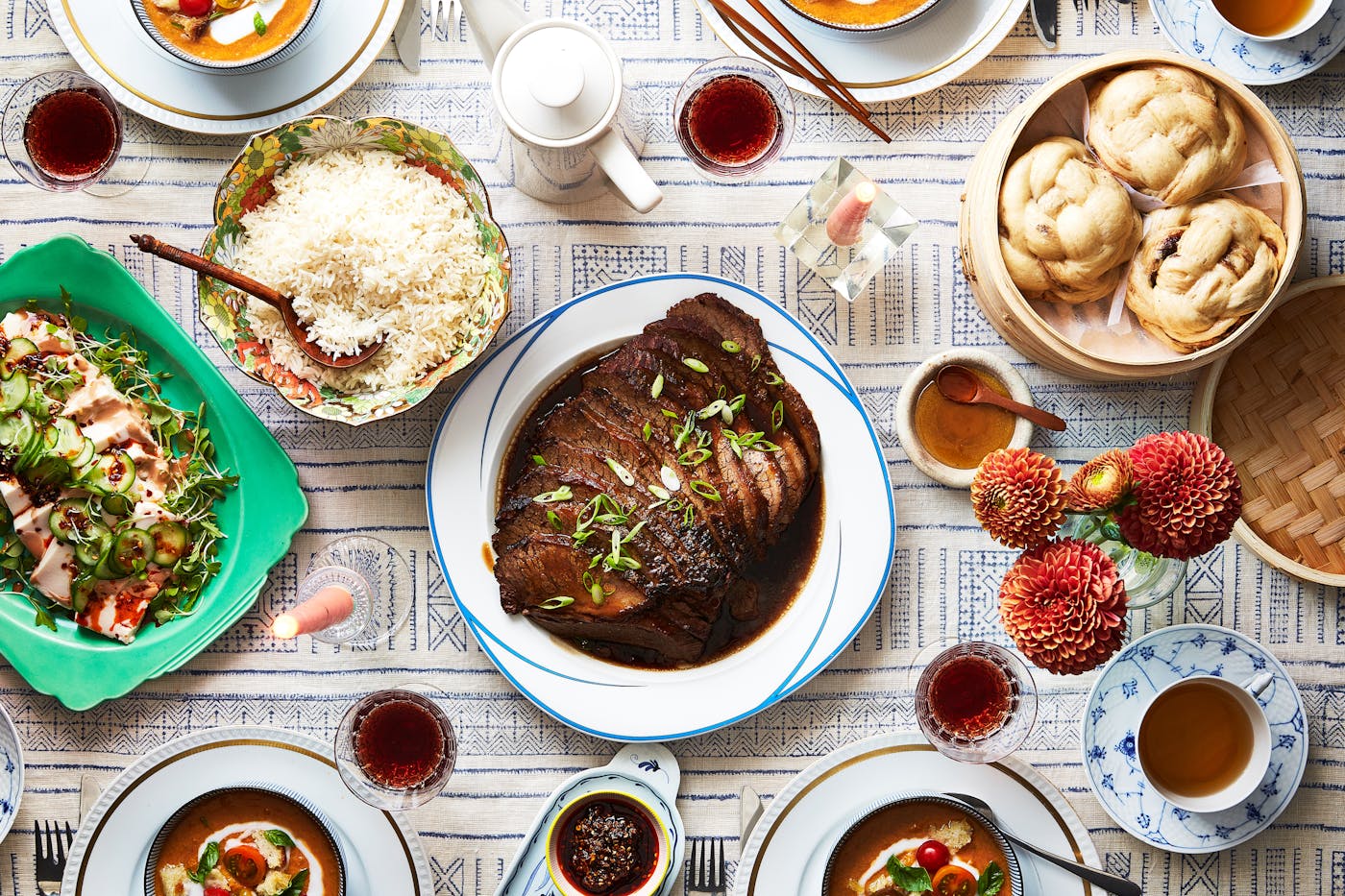Shared by Jamie Wei

Jamie Wei grew up in Taiwan surrounded by dishes like her grandmother’s lu rou fan, braised ground pork belly served with rice, which she ate every Sunday. From a young age, Jamie’s mother instilled in her a love for cooking and a festive spirit. Every Chinese New Year, Jamie’s mother would retrieve boxes of decorations, adorning their home with red and gold curtains, pillowcases and silverware. Then, her mother and grandmother would create a traditional feast for their friends and family. While neither her mother nor grandmother were professional chefs, they knew how to celebrate and passed that love on to Jamie.
After moving to New York and meeting her Jewish husband, Jamie quickly realized that she wanted to learn more about Jewish culture through food. She found an old challah recipe, written in Hebrew, and was determined to perfect it. Her initial challenge was translating it. During the next few months, she tediously tested the recipe. She brought samples to her husband’s Jewish colleagues and her professors at Fashion Institute of Technology, where she was taking classes at the time. Jamie received plenty of criticism: the texture was too chewy, there was too much of a crust, it was too sweet. Every comment contradicted the next. “My conclusion was: there’s no one standard. Everyone has a different preference,” reflects Jamie.
This set her free and she began cooking Jewish recipes according to her own taste. When her mother passed away shortly after, not only did Jamie feel a huge sense of grief, she worried that she had lost the opportunity to learn the dishes that her mother cooked for their family.
Prior to losing her mother, Jamie focused her cooking exploration on traditional Jewish recipes and Middle Eastern flavor profiles. “Then after my mom passed away I think I was in a phase of grief cooking,” Jamie explains. She worked backwards from memory, recreating dishes that reminded her of her mother, food from Taiwan.
When Rosh Hashanah approached that year, she was not in the mood to make non-Taiwanese food, but still wanted to celebrate the holiday with her husband and family. That was when Jamie decided to create her own brisket recipe. “I started thinking, what can I do with brisket that can still give him a familiar texture, but still tastes like my family,” she says.
One of her childhood favorite dishes was niu rou mian, a hearty beef-noodle soup with a deeply flavorful broth. Jamie had never made the dish before, instead she frequented a restaurant in Taiwan that was famous for never washing their stock pot, lending a unique umami flavor to its broth. She called her dad and asked for a list of the spices that she would need to make the soup: licorice root, Chinese cinnamon, Szechuan peppercorns and bay leaves. After searching shops in Chinatown, Jamie was able to track down all of the ingredients she needed to begin developing her own brisket dish. For her, creating this dish brought her culture to life, while still celebrating the traditional Jewish holidays of her husband’s culture.
“In an interracial marriage it’s very important that both sides are equally important. This allowed me to honor both of our cultures with my full heart,” Jamie says.
After creating her Taiwanese brisket, as she calls it, Jamie invited her friends and family over for a Rosh Hashanah dinner party. She decorated her home in the same fashion as her mother, filling the space with a festive, celebratory warmth. She served the brisket as well as braided steamed buns infused with date syrup (in lieu of traditional challah), cucumber curry soup, chili crisp tofu salad, pomegranate jello, and individual loaves of honey cake.
Jamie’s husband and family were moved by the feast, realizing how hard she had worked to celebrate both of their cultures. For Jamie, this was the first time she was able to see herself in their Jewish traditions.
Today, Jamie shares her unique recipes publicly, on Instagram, hoping they will bring the same sense of wholeness to others in similar situations.
